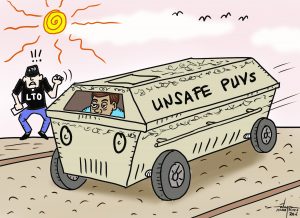IN HIS intervention during the 2nd ASEAN-GCC Summit on May 27, 2025, in Kuala Lumpur, Malaysia, President Ferdinand Marcos Jr. highlighted the central role of the Halal industry and Islamic finance in forging the trilateral trade agenda of ASEAN, China, and the Gulf Cooperation Council (GCC).
Calling for the harmonization of standards and certification systems, President Marcos’ appeal is very timely as the Philippines serves as the country coordinator for ASEAN-GCC relations.
While the Philippines is a Muslim-minority state, this Catholic-majority Southeast Asian country played an important role in facilitating the inclusion of the Halal industry in the broader regional free trade agenda of ASEAN, which is now being extended to the GCC.
When the Asian Financial Crisis hit ASEAN economies between 1997 and 1998, investment in the Halal industry and Islamic finance served as an alternative economic recovery strategy of ASEAN member-states. One example is Malaysia, which specifically included the industry in its Vision 2020 launched in 1998.
With BIMP-EAGA (Brunei-Indonesia-Malaysia-Philippines East Asian Growth Area) in existence since 1994, the subregional grouping served as a platform for Southeast Asian Muslim majority states to promote the popularization of Islamic economics in the region as part of their bid to become a regional or global Halal hub.
This is where the Philippines enters.
In 1999, Halal certification bodies (HCBs) from Muslim minority bodies convened in Jakarta, Indonesia, and founded the World Halal Council (WHC) – one of the oldest global Halal regulatory networks. Attending the historic meeting are representatives from the Islamic Da’wah Council of the Philippines (IDCP), which is considered the first HCB in the Philippines, having formalized its own Halal certification standards and procedures since 1995. Since then, officials from IDC have performed various top leadership roles in the WHC up to the present. By being a member of the WHC, the IDCP served as an instrumental role for Philippine-based food exporters to access key Halal markets since IDCP’s Halal certification is recognized in more than 20 countries since WHC members exercise mutual recognition agreements (MRAs) with one another.
In January 2002, the Philippines hosted the 1st BIMP-EAGA Islamic Business Summit in General Santos City. Through this event, Halal trade officially became a part of the regional trade agenda of ASEAN.
When the Brunei Halal Brand was launched in 2009, Brunei government officials and investors particularly looked at Mindanao as a preferred investment destination.
In 2015, the WHC called for a meeting that invited all Halal certifiers across the globe to condemn the efforts of the European Union (EU) to formulate its own regional Halal standards. Referred to as the “Istanbul meeting”, IDCP served as an important resource person during the event, as the organization shared its milestones in resisting non-Muslim intervention in Philippine Halal industry regulation since 2001.
In December 2017, the Philippine Accreditation Bureau (PAB) became a full member of the International Halal Accreditation Forum (IHAF) based in the United Arab Emirates. PAB emerged as one of three state bodies from Southeast Asia that became part of the new global regulatory network, along with Thailand and Cambodia. However, PAB played a key role in the expansion of IHAF’s membership since PAB is instrumental in accrediting a South Korea-based Halal certifier to become part of IHAF’s global network.
When I am doing my fieldwork for my PhD thesis on the political economy of the Philippine Halal industry in 2023, I also learned from my informants that the Philippine Department of Agriculture (DA) also performs the coordinator role in facilitating the harmonization of Halal standards implemented across ASEAN.
As the Philippines is poised to host the 2026 ASEAN Summit next year, it is imperative for the government to latch on and continue to amplify the important role of Halal trade in connecting the economies of ASEAN, China, and the Gulf Region. Acknowledging and consolidating the individual efforts of various Philippine-based Halal stakeholders is a first step to realizing the proposed trilateral trade agenda articulated by President Marcos in his intervention during the recently concluded ASEAN-GCC Summit.
_____________________________________________________________
Brian U. Doce is a scholar-practitioner with a background in politics and international relations. Aside from being a lecturer in various universities in Metro Manila, Brian has extensive experience working in the space of business-government relations, policy advocacy, and diplomacy. You can contact him through his e-mail: scholarbud@gmail.com.


